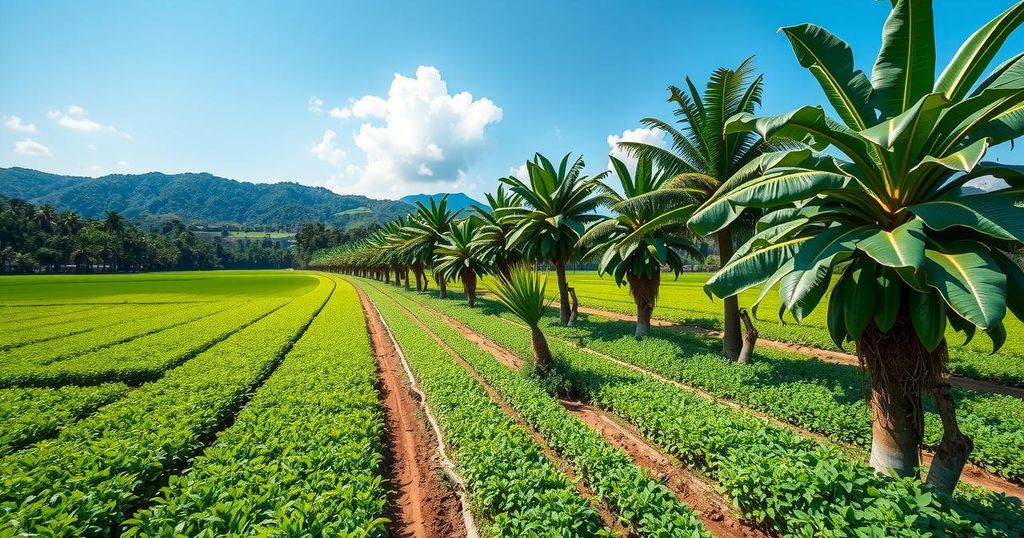Ghana’s Finance Minister, Dr. Cassiel Ato Forson, has reported significant challenges facing the cocoa sector, including high debt levels, declining production by nearly 50%, and revenue losses from unfavorable contracts. He emphasized the need for urgent reforms to enhance sustainability and economic support for farmers amid a deteriorating fiscal environment.
Ghana’s Finance Minister, Dr. Cassiel Ato Forson, recently presented the 2025 Budget and Economic Policy to Parliament, themed “Resetting Ghana for the economy we want.” He underscored serious fiscal risks affecting Ghana’s cocoa sector, revealing that COCOBOD’s outstanding debt has reached 32 billion Cedis. The cocoa industry, historically pivotal to the economy, is currently faltering due to years of mismanagement and is failing to capitalize on high global market prices.
Dr. Forson reported a nearly 50% decline in cocoa production over the past three years, leading to COCOBOD’s inability to fulfill its obligations for the 2023/2024 crop season, resulting in a deficit of 330,000 tonnes. He noted that this shortfall would be carried forward by the new administration, while forward sales contracts for 2023/24 prices locked in at lower rates have caused revenue losses amounting to US$840 million, adversely affecting both COCOBOD and local farmers.
The Finance Minister articulated the significant financial hurdles the cocoa sector faces, specifically unsustainable debt and quasi-fiscal expenditures related to cocoa roads, which he described as a non-core function. He highlighted that COCOBOD’s liabilities amounted to GHC32 billion, with GHC11.92 billion due in 2025 and GHC21 billion in cocoa road contracts registered for 2024, with only GHC4.4 billion reflected in COCOBOD’s financial accounts.
Moreover, the sector is experiencing risks stemming from market price disparities and smuggling, as the disparity between market prices and farmer payments encourages illegal activities, threatening the industry’s sustainability. In light of these issues, Dr. Forson stressed the urgency of reforms to mitigate these fiscal risks and ensure the cocoa sector’s long-term viability.
In conclusion, Ghana’s cocoa industry is facing a multifaceted crisis characterized by declining production, significant debt burdens, and adverse price disparities. The Finance Minister’s call for urgent reforms highlights the necessity for strategic interventions to stabilize the sector and support both COCOBOD and local farmers, ensuring the sustainability of this crucial agricultural economy.
Original Source: www.gbcghanaonline.com




